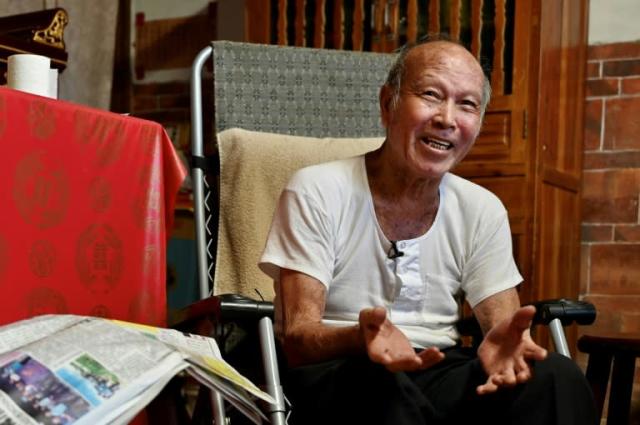KINMEN, Taiwan (AFP) — Not far from the rusted -out tanks and anti-landing spikes that litter the beaches of the Taiwanese island where he lives, 92-year-old veteran Yang Yin-shih reads his newspaper in the shadow of the enemy that regularly adorns its pages.
Several miles from Yang’s home on the tiny Kinmen Islands is the Chinese mainland, where he can see for himself the military might that threatens his homeland.
Beijing last week staged unprecedented war games around the self-ruled democracy it claims as its own in a hailstorm of rage after US House Speaker Nancy Pelosi visited Taiwan’s capital.
As Chinese vessels dotted the Taiwan Strait and missiles plunged into the waters surrounding the island, a real risk of conflict reared its head.
But Yang was unfazed by the latest beating of Beijing’s war drum despite the islets of 140,000 people sitting just 3.2 kilometers (two miles) across from the Chinese city of Xiamen.
“I am not nervous. Kinmen is calm and quiet,” he told AFP, cracking a smile between his morning routines of watching television and strolling his neighborhood.
Yang witnessed China’s deadliest bombardment of Taiwan’s closest islands to the mainland more than 60 years ago and says the latest drills are small-fry in comparison.
In 1958, China fired more than a million shells at Kinmen and nearby communities, killing 618 people and injuring more than 2,600.
“The (1958) bombardment was more nerve-wracking. It was more tense back then,” he said. “It’s hard to tell the situation — whether (China) intends to intimidate or has plans to attack.”
Despite the bitter memories of conflict and current tensions, many Kinmen residents hold friendly views of China after years of close trade and travel links across the short stretch of sea.
Taiwan suspended ferry services to Chinese cities because of Covid-19 but Yang Shang-lin, a 34-year-old in the tourism sector, said he hopes Kinmen will reopen to Chinese visitors soon despite Beijing’s saber-rattling.
While the Kinmen Islands once served as a natural barrier to invasion, Beijing can now easily bypass them with its superpower armory of missiles, jets and aircraft carriers.
